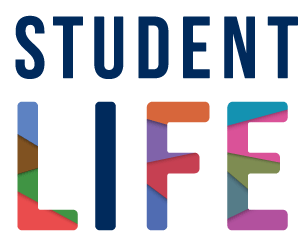The Study Smart: How to Succeed at U of T conference was held on February 8, 2020 at the Multi-Faith Centre. Students gathered with alumni and staff to share learning strategies, and experiences of failure, success and resilience.
Here are 5 takeaways from the conference for studying smarter and succeeding at U of T
Manage stress
Stress can have a big impact on your cognition, but eustress or positive stress can help you stay motivated and work towards your goals.
It’s important to recognize when you’re feeling overwhelmed and to find practices that can help you find your level of eustress. This might be writing down your thoughts, practicing breathing exercises, taking a walk, etc. Find what works best for you.
Turn failure and rejection into opportunity
Failure and rejection are difficult to experience, but it can be helpful to practice self-compassion and use these situations as opportunities for learning.
Shen, a PhD student in Social Work shared how his thinking around success has shifted, “I’m starting to think more about “what can I learn from this?”, Instead of only being outcome driven.”
Similarly, Marnier, a third-year Kinesiology student, shared, “Instead of just striving towards excellence, I can strive to keep moving forward whenever I can.”
Map out a plan
When planning for assignments and deadlines, it can help to look at the whole semester or view tasks in relation to others. Create a heat map of deadlines by using a 13-week, monthly or weekly planner to help you prioritize multiple deadlines.
Find study habits that work for you
Spacing your time for review can be more effective than cramming your studying into one long session. Give yourself short breaks in-between to keep your attention engaged.
Practicing recalling information is also a more effective way to study as opposed to just reading your notes, as it can improve comprehension and retention.
There are many other study hacks and tips that can be found at Academic Success. You can also connect with a learning strategist to discuss strategies that fit your needs.
Be part of a community
Social connection is necessary to self-development and well-being. It can also be beneficial to your learning as a network for support.
Naabela, a fifth-year Arts & Science student, found comfort in learning that she was not the only one who has struggled,
“I learned that a lot of people struggle in school – more than I thought. I assumed that I couldn’t talk to others about how much I was struggling because they probably were doing a lot better than me. But it’s extremely common so I felt relieved and strong enough to try again.”
For academic support, Study Hubs are weekly group study sessions led by peer mentors who can help you set achievable goals for each session.
Academic Success also offers many different workshops where you can learn strategies and skills in a group setting.
Log in to CLNx to see schedules for upcoming Study Hubs and workshops.




